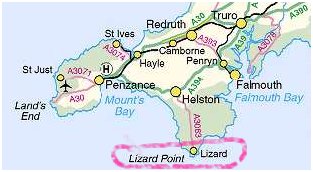

|
*写真出典:R. Clark's B. Russell and His World, 1981. 当時トレヴェリアン3兄弟(松下注:Charles, Robert, and George Trevelyan)がいた。(3人のなかでは)長男のチャールズ(Chrales Trevelyan, 1870-1958: 英国の政治家、第一次(= 1924年)及び第二次(=1929-1931)労働党内閣で文部大臣)が才能の点で最も劣っていると、我々全員考えていた。私は、次男のボブ(松下注:Robert Calverley Trevelyan, 1872-1951: 詩人であり、翻訳家 /Bob は Robert の愛称)と特に親しかった。彼は、それほど霊感に満たされているわけではなかったが、非常に博学の詩人となった。しかし彼は、若かった頃、奇抜なユーモア(のセンス)をもっていた。かつて私たちが(イングランド北西部の)湖水地方で読書会を開いていた時のこと、エディー・マーシュ(訳注:後のサー・エドワード・マーシュ:チャーチルの個人秘書)が寝すごし、寝巻姿(寝間着の長シャツ)で、朝食の用意ができているかどうかを確かめに下に降りてきた。彼は、寒々とした、みじめな姿だった。ボブは彼に、「凍えた白衣の幽霊 cold white shape」と命名した。そうしてこのあだ名が長い間彼につきまとった。
|
Then there were the three brothers Trevelyan. Charles, the eldest, was considered the least able of the three by all of us. Bob, the second, was my special friend. He became a very scholarly, but not very inspired, poet, but when he was young he had a delicious whimsical humour. Once, when we were on a reading party in the Lakes, Eddie Marsh, having overslept himself, came down in his night-shirt to see if breakfast was ready, looking frozen and miserable. Bob christened him 'cold white shape', and this name stuck to him for a long time.  George Trevelyan was considerably younger than Bob, but I got to know him well later on. He and Charles were terrific walkers. Once when I went a walking tour with George in Devonshire, I made him promise to be content with twenty-five miles a day. He kept his promise until the last day. Then he left me, saying that now he must have a little walking.
George Trevelyan was considerably younger than Bob, but I got to know him well later on. He and Charles were terrific walkers. Once when I went a walking tour with George in Devonshire, I made him promise to be content with twenty-five miles a day. He kept his promise until the last day. Then he left me, saying that now he must have a little walking.
 On another occasion, when I was walking alone. I arrived at the Lizard one evening and asked if they could give me a bed. 'Is your name Mr Trevelyan?' they answered. 'No,' I said, 'are you expecting him? 'Yes,' they said, 'and his wife is here already.' This surprised me, as I knew that it was his wedding day. I found her languishing alone, as he had left her at Truro, saying that he could not face the whole day without a little walk. He arrived about ten o'clock at night, completely exhausted, having accomplished the forty miles in record time, but it seemed to me a somewhat curious beginning for a honeymoon. On August 4, 1914, he and I walked together down the Strand quarrelling. Since then I saw him only once, until I returned to Trinity in 1944, after he had become Master. When he was still an undergraduate he explained to me once that the Trevelyans never make matrimonial mistakes. 'They wait', he said, 'until they are thirty, and then marry a girl who has both sense and money.' In spite of occasional bad times, I have never wished that I had followed this prescription.
On another occasion, when I was walking alone. I arrived at the Lizard one evening and asked if they could give me a bed. 'Is your name Mr Trevelyan?' they answered. 'No,' I said, 'are you expecting him? 'Yes,' they said, 'and his wife is here already.' This surprised me, as I knew that it was his wedding day. I found her languishing alone, as he had left her at Truro, saying that he could not face the whole day without a little walk. He arrived about ten o'clock at night, completely exhausted, having accomplished the forty miles in record time, but it seemed to me a somewhat curious beginning for a honeymoon. On August 4, 1914, he and I walked together down the Strand quarrelling. Since then I saw him only once, until I returned to Trinity in 1944, after he had become Master. When he was still an undergraduate he explained to me once that the Trevelyans never make matrimonial mistakes. 'They wait', he said, 'until they are thirty, and then marry a girl who has both sense and money.' In spite of occasional bad times, I have never wished that I had followed this prescription.
|